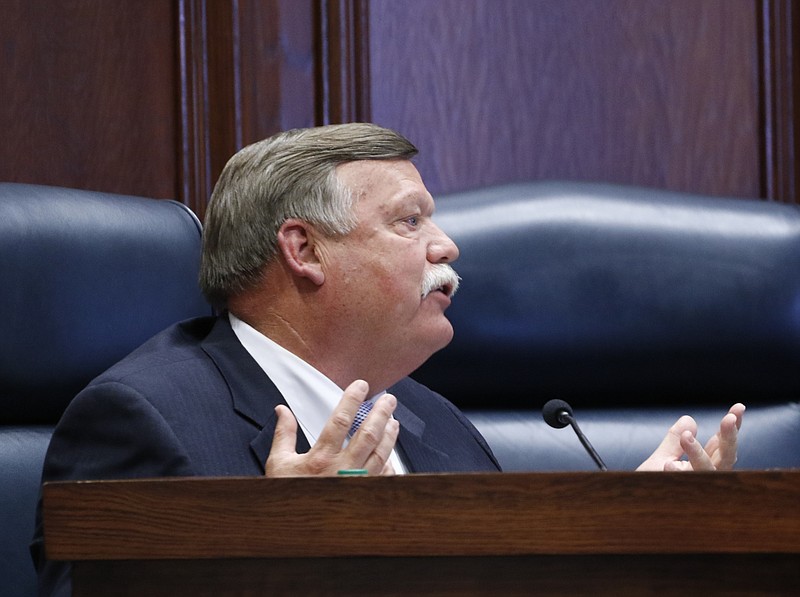It must be June. I mean, when else do we talk about discretionary spending in Hamilton County? The topic has returned to the headlines because, once again, County Mayor Jim Coppinger has proposed an annual budget sans discretionary funds.
It was this time last year when county commissioners haggled over whether they should continue using those pet project dollars after Mayor Coppinger stripped them from his 2016 budget. The squabbling was intense at times, including a nasty public spat between Coppinger and Commissioner Tim Boyd.
In the end, the commission voted 6-3 to withdraw $900,000 from county reserves to use as discretionary funds. Only commissioners Greg Beck, Joe Graham and Marty Haynes opposed the measure. The six in favor were Chester Bankston, Tim Boyd, Randy Fairbanks, Jim Fields, Warren Mackey and Sabrena Smedley.
At the time I called it "a desperate grab for cash." I still see it as such.
Those in favor of discretionary funds sing a different tune. As Commissioner Bankston once put it, "I have so many projects in my district that just don't get funded outside of discretionary spending." To him, playing benevolent benefactor and doling out taxpayer money to causes he personally selects is "the right thing to do." That sounds like a noble justification, but it's off base in at least three ways - especially since Bankston is a Republican.
First, the system operates as a publicly financed re-election campaign account. Naturally, not a single advocate of discretionary spending will admit this. But it's true. Over the course of a single term in office, each commissioner gets to throw nearly half a million dollars - $100,000 per year- around to whatever groups and projects they find most deserving. Come election time, the people touched by those contributions will likely go to the polls and show their appreciation. I'm not certain which is worse, Super PACs or this taxpayer-subsidized campaigning. (Note: Some commissioners have reportedly established community panels to help in their decision-making process, but that's weak tea considering panelists are handpicked by each commissioner.)
Second, the projects financed by discretionary funds are not essential. Sure, most are good causes. Just take a look at 2016 expenditures, and you'll see checks have been written to help support neighborhood festivals, scholarship funds, library expansions and even rural volunteer fire departments. That said, government is only supposed to provide vital services, and the mayor's suggested general budget - which swelled by $14.3 million this year - already does that.
Third, for any elected official flying under the conservative banner, the use of discretionary funds runs completely counter to their (supposed) philosophical guiding lights. Conservatives bemoan the ever-growing presence of government - from federal to local levels - as well as the increasing dependency Americans have on this hulking and clumsily overlapping bureaucracy. Discretionary funds take this troubling relationship one step further, creating a level of dependence not just on government but to a single elected official. Not only are these donations non-essential, they pervert the relationship between citizens and their government.
Since learning his directive to have commissioners deliberate over the matter via email violates Tennessee's Sunshine Law, Boyd now wants to convene a special meeting to determine the fate of discretionary funds and "put the matter to bed for once and for all."
Yes, I agree with Boyd. It's high time to resolve the issue by permanently ending the practice of discretionary spending in Hamilton County.
Contact David Allen Martin at davidallenmartin423@gmail.com and follow him on Twitter @DMart423.

